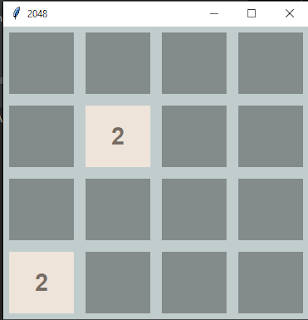Clock development [part 2 : in Python]
Why buy a clock when you can build one .... ?
If you know Python , it is so easy to make one ..
The Code ..
from PyQt5.QtWidgets import * # pip install PyQt5
from PyQt5 import QtCore, QtGui
from PyQt5.QtGui import *
from PyQt5.QtCore import *
import sys
# creating a clock class
class Clock(QMainWindow):
# constructor
def __init__(self):
super().__init__()
# creating the timer object
timer = QTimer(self)
# moving the timer
# update the whole code
timer.timeout.connect(self.update)
# setting the start time of the timer i.e 1 second
timer.start(1000)
# setting window title
self.setWindowTitle('Analog Clock')
# setting window geometry
self.setGeometry(200, 200, 300, 300)
# setting background color to the window
self.setStyleSheet("background : black;")
# creating hour hand
self.hPointer = QtGui.QPolygon([QPoint(6, 7),
QPoint(-6, 7),
QPoint(0, -50)])
# creating minute hand
self.mPointer = QPolygon([QPoint(6, 7),
QPoint(-6, 7),
QPoint(0, -70)])
# creating second hand
self.sPointer = QPolygon([QPoint(1, 1),
QPoint(-1, 1),
QPoint(0, -90)])
# colors
# color for minute and hour hand
self.bColor = Qt.green
# color for second hand
self.sColor = Qt.red
# method for paint event
def paintEvent(self, event):
# getting minimum of width and height
# so that clock remain square
rec = min(self.width(), self.height())
# getting current time
tik = QTime.currentTime()
# creating a painter object
painter = QPainter(self)
# method to draw the hands
# argument : color rotation and which hand should be pointed
def drawPointer(color, rotation, pointer):
# setting brush
painter.setBrush(QBrush(color))
# saving painter
painter.save()
# rotating painter
painter.rotate(rotation)
# draw the polygon i.e hand
painter.drawConvexPolygon(pointer)
# restore the painter
painter.restore()
# tune up painter
painter.setRenderHint(QPainter.Antialiasing)
# translating the painter
painter.translate(self.width() / 2, self.height() / 2)
# scale the painter
painter.scale(rec / 200, rec / 200)
# set current pen as no pen
painter.setPen(QtCore.Qt.NoPen)
# draw each hand
drawPointer(self.bColor, (30 * (tik.hour() + tik.minute() / 60)), self.hPointer)
drawPointer(self.bColor, (6 * (tik.minute() + tik.second() / 60)), self.mPointer)
drawPointer(self.sColor, (6 * tik.second()), self.sPointer)
# drawing background
painter.setPen(QPen(self.bColor))
# for loop
for i in range(0, 60):
# drawing background lines
if (i % 5) == 0:
painter.drawLine(87, 0, 97, 0)
# rotating the painter
painter.rotate(6)
# ending the painter
painter.end()
# Driver code
if __name__ == '__main__':
app = QApplication(sys.argv)
# creating a clock object
win = Clock()# show
win.show()
exit(app.exec_())
And the output is ...





Comments
Post a Comment